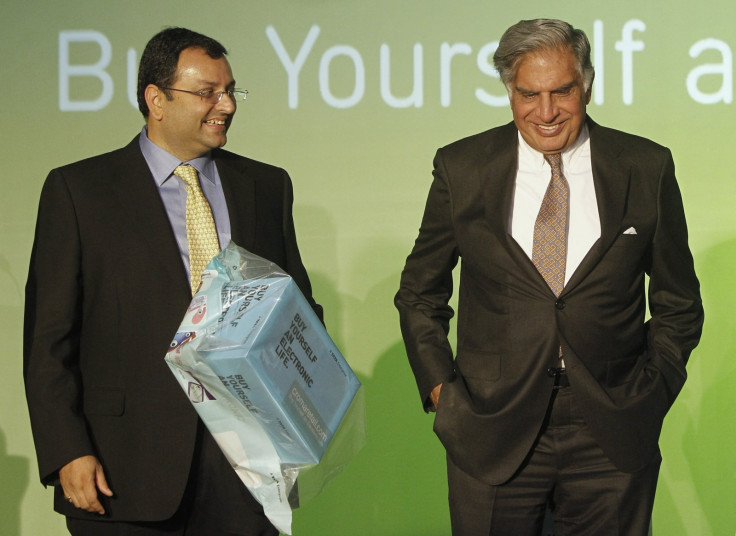Tatas brace for legal battle following Cyrus Mistry's ouster
Tata group companies lost £2.08bn in two trading sessions after Cyrus Mistry's removal.

"Every household in India possesses at least one Tata product" is often a not-so-exaggerated assertion among senior executives of the Tata conglomerate in India, a country of 1.25 billion people. But, the country's largest business empire has plunged into deep turmoil with the abrupt removal of its chairman, Cyrus Mistry. There is now the likelihood of a potentially bruising legal battle.
As an immediate fallout, the $100bn group's top five performing companies have lost Rs 170bn (£2.08bn) in terms of market value in just two trading sessions since the 48-year-old's departure.
Mistry, who was the first person outside the founding Tata family to hold the chairman post in the corporation's 148-year-old history, was removed on Monday (24 October) creating tremors in Indian business circles.
The Tata group's companies employ roughly half a million people across 100 countries.
Mistry's exit has come at a time the sprawling family business group, headquartered in the financial capital of Mumbai, is facing major financial challenges – both in India and abroad. In the financial year ended in March 2016, the Tata group's revenue slipped 4.6% and it is currently sitting on a $36bn debt pile.
Ratan Tata, the 78-year-old patriarch who was at the helm for over two decades before Mistry's arrival, has been brought back as an interim chairman by Tata Sons, the holding company of the Tata group.
Ratan, considered dynamic by many, took the group from a $6bn business to a $100bn mega corporation since he took over in 1991. He boosted the group's global image by a slew of big-name purchases such as Corus Steel, Tetley and Jaguar Land Rover.
With Tata Sons yet to offer any official reason for Mistry's ouster from the salt-to-software conglomerate, several theories are doing the rounds including his perceived poor performance in the past four years, sagging financials of key firms and disagreements with his predecessor in steering the behemoth.
The Tata brand is built on business values such "ethics, transparency and good governance".
Mistry, who is speculated to be mulling a legal battle challenging the Tata board's decision, wrote back to the Tata board without pulling any punches: "I have to say the board of directors has not covered itself with glory. To replace the chairman without so much as a word of explanation and without affording him an opportunity to defend himself must be unique in the annals of corporate history."
A new chairman, who will be tasked to perform a lot of firefighting operations both inside and outside the group, is to be appointed within the next four months.
© Copyright IBTimes 2025. All rights reserved.






















